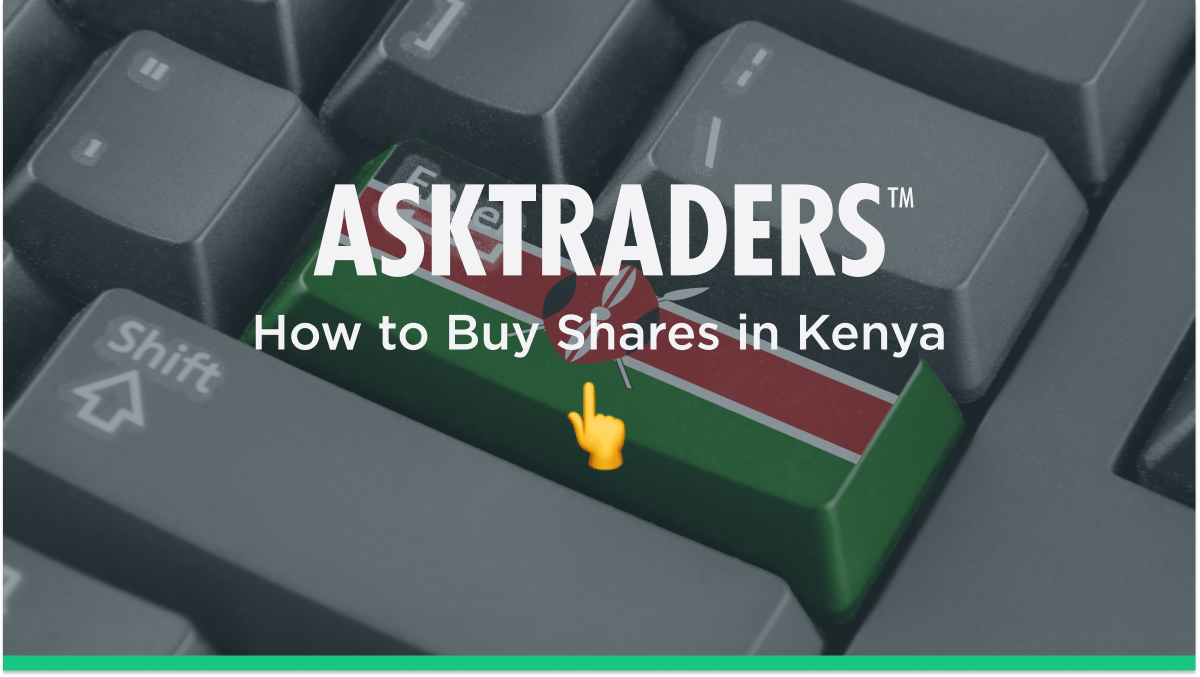Many potential share investors are intimidated by the prospects of buying shares on the Nairobi Securities Exchange (NSE). This is mainly because they do not understand the process involved with buying/selling shares, and how the market works.
YOUR CAPITAL IS AT RISK

Others still believe that share investment is an activity only reserved for sophisticated investors. However, this has changed significantly in recent years.
With developments in technology, more prospective investors can enter the market and there are many regulated and reputable stockbrokers that accommodate Kenyan investors, even if they do not have prior experience in buying, selling, or trading shares.
The Nairobi Securities Exchange is the official stock exchange in Kenya. It is the central marketplace where buyers and sellers of Kenyan shares meet to trade. There are more than 64 stocks from companies spanning across the 11 sectors of the Kenyan economy, including:
- Investment Services
- Banking
- Investment
- Agriculture
- Automotive
- Construction
- Commercial
- Insurance
- Energy, and more.
Why Should You consider buying/selling shares in Kenya?
There is one main reason why people trade shares, and this is to make a profit from buying and selling securities and to earn dividends and capital gains from being a shareholder.
When you trade stocks, your profitability will be determined by the timing of the market, market conditions, risk factors, supply and demand of shares, the company's performance, stock mispricing, and several other components.
Stocks are a highly liquid investment, and they can easily be bought or sold. The reason for their liquidity lies in the high volume of buyers and sellers who participate in the market.
YOUR CAPITAL IS AT RISK
How to Buy Shares in Kenya
Step 1: Choose your shares
When you are looking for shares to form part of your investment portfolio, you are going to use either one of the following analysis methods or a combination of both:
- Fundamental analysis – in which you analyse different factors that may influence the future price of a share according to the company's management, financial statements, and the position of the company in the industry and market.
- Technical analysis – in which you analyse the price movements of the share by viewing price charts, patterns, and graphs, which indicate how its price moves.
When you start trading shares, it is important to remember that stock prices can be susceptible to volatile market movements, which is why it is crucial to use a combination of fundamental and technical analysis to provide you with the “why” as well as the “how”.
Step 2: Choose your shares
To choose the right shares, you need to understand what your risk profile is, what risk appetite you have, and what risk you are willing to face when buying and selling shares.
Once you understand what type of investor you are and what you can afford to lose, you need to research the companies in which you want to own shares. You can view a variety of fundamentals and conduct a technical analysis to understand the share prices, how and why they move.
Based on this, you can decide which shares are worth investment and build your portfolio. It is important to remember not to choose large stocks purely based on it being a brand name or a well-known company.
Some of the largest companies often experience small movements in their stock prices and many do not pay out as much in dividends if they offer dividends at all. For a more effective approach, make a list of the top gainers and top losers, and make an informed investment decision based on your analysis.
Step 3: Choose a stockbroker
You cannot buy or sell shares directly on the NSE. You need a stockbroker that will facilitate your trade. Choosing the right broker will involve in-depth research of the market and professionals that offer their trading and investment solutions and options.
When you choose a stockbroker, look at their regulation status, licenses, the services that they provide, the fees that they charge, their expertise, and the trading platform that they offer.
As a beginner, it is also important to select a broker that will provide you with the necessary training and education, helping you gain an understanding of the stock exchange, stock market, and the process involved with trading.
Our Favourite Stock Trading Platforms:
eToro: 68% of retail CFD accounts lose money
Start TradingPepperstone: Award-Winning Broker
Start TradingAdmirals (Admiral Markets): Great Educational Centre
Start TradingIG: UK's No.1 Stock Provider
Start TradingWhether you're a new trader looking to get started with investing or just curious, these trading platforms are perfect for beginners. Not only are each of these brokers fully regulated – providing a safe and secure trading environment – they are fully equipped with everything you need to succeed. This includes a wide range of stocks to choose from and educational resources to help you get started and make your first trade.
Step 4: Open a Trading Account
Before you can start trading, you need to register a Central Depository System (CDS) account. This account will be unique to each investor, and it can either be opened by an individual or on a joint basis.
This account is like a bank account specifically for the stock and securities market, with the Central Depository and Settlement Corporation (CDSC) ensuring that all settlements are paid out.
You can either open a CDS account at the Central Bank, or it can be opened with any local central depository agents. You will need to fill out a CDS 1 form and submit the following documentation:
- Two colour passport-sized photos
- KRA pin
- National ID or Passport
- Proof of residence
- Proof of income in the form of a payslip or a bank statement
Step 4: Buying Shares
Before you deposit capital into your trading account, it is important to first use a demo account with your broker. This is a paper trading account that allows you to trade in NSE using virtual funds.
The demo account allows you to gain valuable insight into how the stock market works and how real-time prices move and change. Once you have gained enough experience, you can deposit real money into your trading account.
From here, you will have an improved idea about which stocks you want to buy with your capital, which market position to take, and what to expect from your shares.
Market positions mean buying or selling shares. When you enter a buy or long position, you believe the stocks will appreciate and therefore you purchase them. When you enter a sell or short position, you believe the stocks will depreciate and you, therefore, sell them to buy them back at a lower price.
YOUR CAPITAL IS AT RISK
